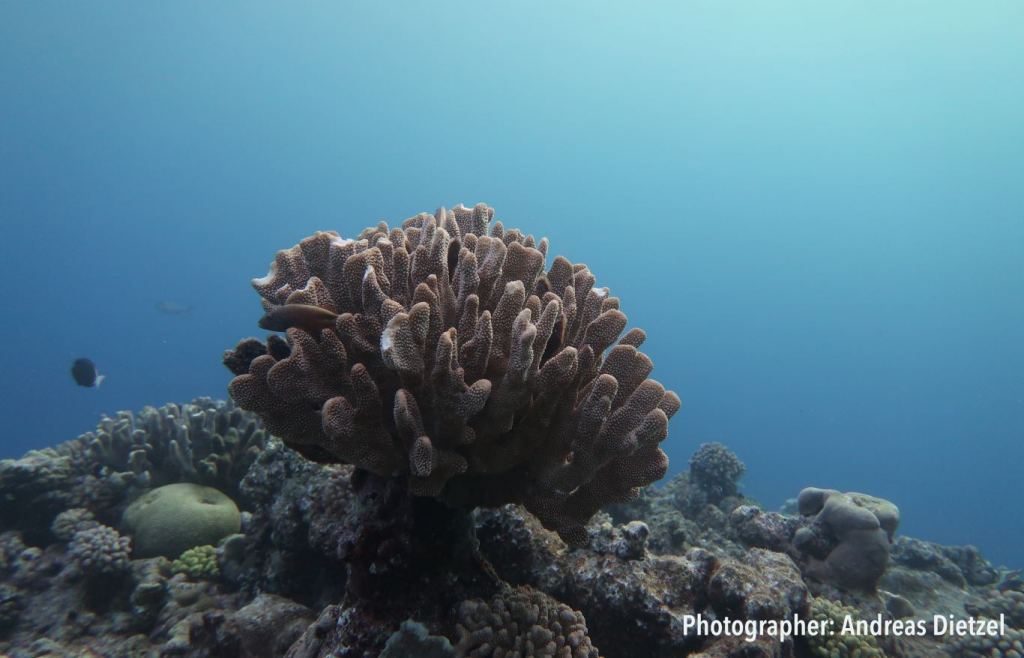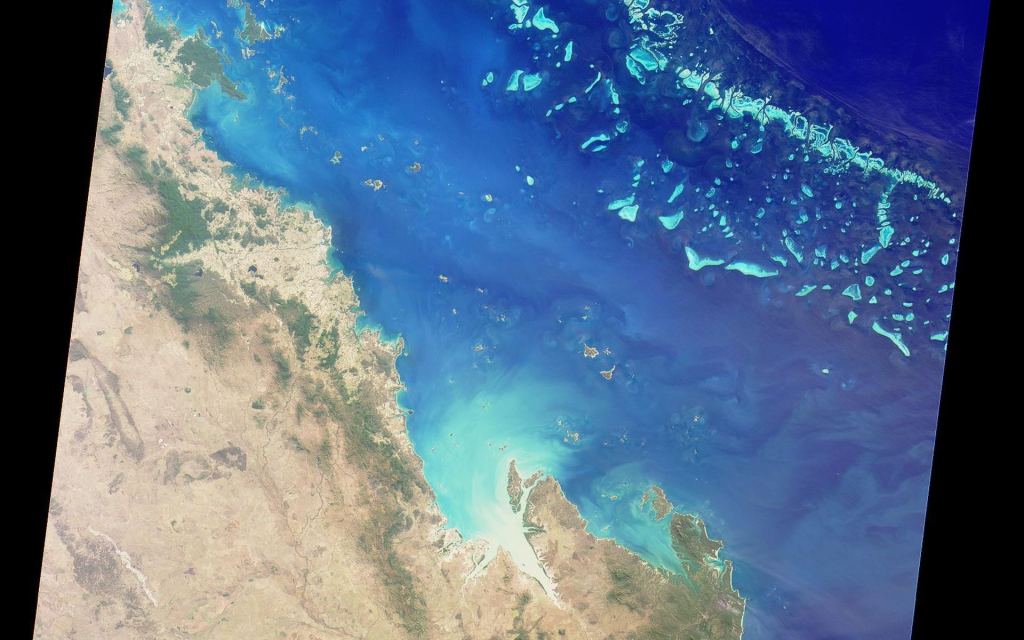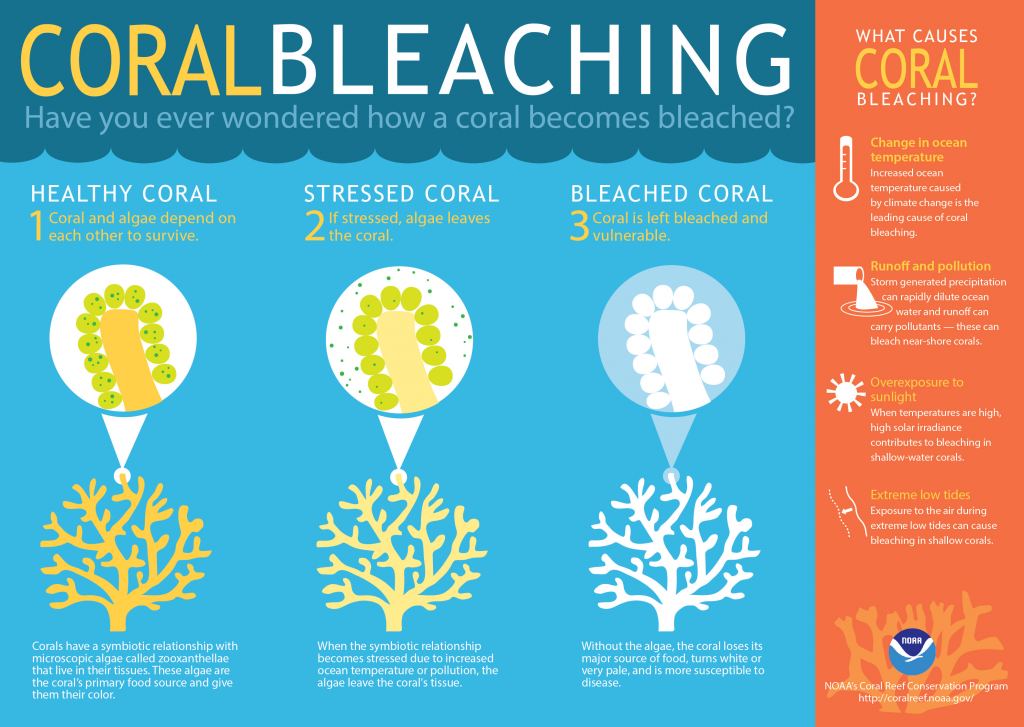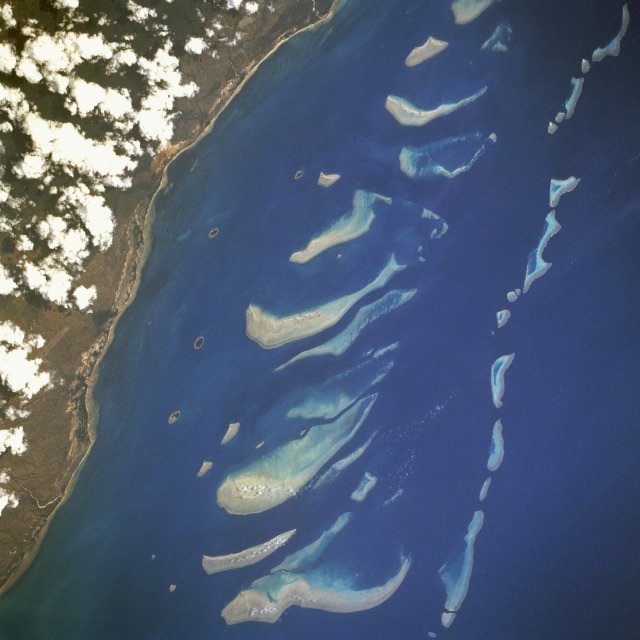A new study found that warmer ocean temperatures driven by climate change have caused Australia’s Great Barrier Reef to lose more than half of its corals since 1995. The researchers say virtually all coral populations along the Great Barrier Reef have declined due to repeated “bleaching events” in the past 25 years. They said the devastation of the coral will continue unless action is taken to mitigate the causes of a warming climate.
“We found the number of small, medium and large corals on the Great Barrier Reef has declined by more than 50 percent since the 1990s,” said co-author Professor Terry Hughes, from the ARC Centre of Excellence for Coral Reef Studies (CoralCoE) in Queensland, Australia, in a press release. “The decline occurred in both shallow and deeper water, and across virtually all species.”
Hughes added that the decline occurred most prominently in branching and table-shaped corals, the large, structural species which provide habitats for fish and other marine life.

The Great Barrier Reef, located in the Coral Sea off the coast of Queensland, Australia, is the world’s largest reef system and is the world’s biggest single structure made by living organisms. It consists of over 2,900 individual reefs and 900 islands stretching for over 2,300 kilometers. Even though it is composed of and built by billions of tiny organisms known as coral polyps the Great Barrier Reef can be seen from space.
“We used to think the Great Barrier Reef is protected by its sheer size,” said Hughes. “But our results show that even the world’s largest and relatively well-protected reef system is increasingly compromised and in decline.”

The researchers, led by Dr. Andy Dietzel, also from CoralCoE, assessed the health and size of coral colonies across the reef from 1995 to 2017.
“We measured changes in colony sizes because population studies are important for understanding demography and the corals’ capacity to breed,” Dietzel said.
NOAA says that prolonged high temperatures have devastated portions of the reef with coral bleaching. Coral bleaching occurs when corals become heat-stressed enough to expel their primary source of food, the microalgae that live inside their cells. This leaves the coral looking as white as if they had been soaking in bleach. Without algae, the reef also loses its major source of food, making it more susceptible to disease and death.

Bleaching events at the Great Barrier Reef have occurred in 1998, 2001, and 2006 and across 2008-2009 and 2010-2011, with mass bleaching in 2016 and 2017. Reefs are capable of surviving bleaching events , if the damage is not too great and if there is enough time between events for recovery. Hughes said it takes approximately 10 years for a “decent recovery.”
But the ongoing ocean warming may keep some reefs from ever recovering their previous level of health, diversity, and productivity.
Dietzel saids one of the major implications of coral size is its effect on survival and breeding.
“A vibrant coral population has millions of small, baby corals, as well as many large ones– the big mamas who produce most of the larvae,” he said. “Our results show the ability of the Great Barrier Reef to recover–its resilience–is compromised compared to the past, because there are fewer babies, and fewer large breeding adults.”
The team wrote in their paper that “The potential for recovery of older fecund corals is uncertain given the increasing frequency and intensity of disturbance events. The systematic decline in smaller colonies across regions, habitats and taxa, suggests that a decline in recruitment has further eroded the recovery potential and resilience of coral populations.”
The authors say they will continue to study the demographic trends of corals, since understanding if the reefs can ever recover is crucial to understanding the health of our oceans in a warming world.
“There is no time to lose–we must sharply decrease greenhouse gas emissions ASAP,” the authors concluded in their paper.
Further reading:
Paper published in the Proceedings of the Royal Society
Press release
Will the Great Brrier Reef Recover/NOAA

